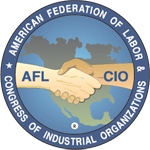
In addition, another estimated 50,000 die every year from occupational diseases – an average of 137 a day, bringing the total worker fatalities to 150 a day.
North Dakota, Wyoming, Alaska and Arkansas had the highest workplace fatality rates, while New Hampshire, Rhode Island, and Washington had the lowest. Latino workers, especially those born outside of the United States, continue to face rates of workplace fatalities 14 percent higher than other workers, the same as last year.
In 2011, 3.8 million workers across all industries experienced work-related illnesses and injuries. The true toll is estimated to be two to three times greater, but lack of reporting in this area results in lower official figures.
The job fatality rate had been declining steadily for many years, but in the past three years the rate has essentially been unchanged, at 3.5 fatalities per 100,000 workers. Similarly, for the past two years, there has been no change in the reported workplace injury and illness rate (3.5 per 100 workers).
This year’s report comes on the heels of a horrific explosion at a fertilizer plant in West, Texas, which killed 15 people, injured hundreds more and caused widespread destruction.
The report also examines the role of the Occupational Safety and Health Administration (OSHA) 43 years after its creation. It finds that OSHA remains underfunded and understaffed, and that penalties are too low to deter violations. Because of the underfunding, federal OSHA inspectors can only inspect workplaces once every 131 years on average, and state OSHA inspectors would take 76 years to inspect all workplaces.
OSHA penalties are too low to be taken seriously, let alone provide deterrence. The average penalty is only $2,156 for a serious federal health and safety violation, and only $974 for a state violation. Even in cases involving worker fatalities, the median total penalty was a paltry $5,175 for federal OSHA and $4,200 for the OSHA state plans. By contrast, property damage valued between $300 and $10,000 in the state of Illinois is considered a Class 4 felony and can carry a prison sentence of 1 to 3 years and a fine of up to $25,000.
Criminal penalties under OSHA are also weak. While there were 320 criminal enforcement cases initiated under federal environmental laws and 231 defendants charged in fiscal year 2012, only 84 cases related to worker deaths have been prosecuted since 1970.
In the face of an ongoing assault on regulations by business groups and Republicans in Congress, progress on many new important safety and health rules has stalled. The White House Office of Management and Budget has delayed needed protections, including OSHA’s draft proposed silica rule, which has been held up for more than two years.
“In 2013, it is unacceptable that so many hardworking men and women continue to die on the job,” said AFL-CIO President and third-generation coal miner Richard Trumka. “No one should have to sacrifice his or her life or health and safety in order to earn a decent living. Yet, elected leaders, business groups and employers have failed to provide adequate health and safety protections for working families. At the same time, too many politicians and business leaders are actively working to dismantle working people’s right to collectively bargain on the job and speak out against unsafe, unjust working conditions. This is a disgrace to all those who have died. America’s workers deserve better.”
“Death on the Job: The Toll of Neglect” was released after hundreds of Workers Memorial Day vigils, rallies and action were held across the country to commemorate all those workers who died and were injured on the job.